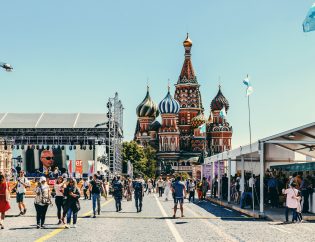Provisional estimates indicate that Malta’s Gross Domestic Product (GDP) for the second quarter of 2018 amounted to €3,001.1 million, an increase of €238.0 million or 8.6% when compared to the corresponding period last year. In real terms, GDP went up by 5.9%.
Fintech & Virtual Financial Asset (VFA) Regulation soon to become operative
July and August 2018 were busy months for the Malta Financial Services Authority having carried out a consultation exercise with regards to the regulations and rulebook of the VFA Act. It is that the VFA Act will now become operative from 1st October 2018.
Public Finances – An increase in Income Tax and VAT collected
During the period January-July 2018, Government’s Consolidated Fund registered a deficit of €117.2 million. In the period January-July 2018, total recurrent revenue was recorded at €2,258.1 million, up from €2,160.6 million recorded last year. The comparative increase of 4.5 per cent was primarily the result of higher Income Tax and Value Added Tax, which increased by €96.1 million and €34.7 million respectively. Compared to January-July 2017, total expenditure stood at €2,375.3 million up from €2,265.6 million due to added outlays on recurrent expenditure and capital expenditure which outweighed lower spending on interest payments.
Unemployment – 1% Unemployment rate
In July 2018, the number of persons registering for work stood at 1,828, decreasing by 26.9 % when compared to the corresponding month in 2017. As per Eurostat published data the unemployment rate in Malta in July 2018 in Malta stood at 4%.
In July 2018, the annual rate of inflation as measured by the Retail Price Index (RPI) was 1.0%, up from 0.97 per cent in June 2018. The twelve-month moving average rate was 1.04%. The largest upward impact on annual inflation was measured in the Food Index, while the largest downward impact was recorded in the Clothing and Footwear Index.
Inbound Tourism – An increase of 16.9% in tourist arrivals
Inbound tourist trips for the first seven months of 2018 reached 1,451,527, an increase of 16.9% over the same period in 2017. Total nights spent by inbound tourists went up by 16.6 per cent, surpassing 10.0 million nights (Table 8). Total tourism expenditure was estimated at €1.1 billion, 11.0 per cent higher than that recorded for 2017 (Table 9). Total expenditure per capita stood at €772, a decrease of 5.1%when compared to 2017
Inflation – Annual rate of Inflation at 1%
Malta’s Latest Economic & Financial News
In July 2018, the annual rate of inflation as measured by the Retail Price Index (RPI) was 1.0%, up from 0.97 per cent in June 2018. The twelve-month moving average rate was 1.04%. The largest upward impact on annual inflation was measured in the Food Index, while the largest downward impact was recorded in the Clothing and Footwear Index.
Provisional data for international trade shows that a trade deficit of €312.1 million was registered in June 2018, compared to a deficit of €128.8 million in the corresponding month of 2017. Imports increased by €123.9 million, while exports show a decrease of €59.4 million.
By the end of June 2018, the stock of licensed motor vehicles stood at 379,338, an increase of 3.8% over the same quarter in 2017. In Q2 2018, Newly-licensed ‘brand new’ motor vehicles amounted to 3,197 or 45.2% of the total, whereas newly licensed ‘used/2nd hand’ motor vehicles totalled 3,872 or 54.8%. An average of 78 vehicles per day were newly licensed during Q2 2018.
Total outbound tourist trips between January and June 2018 numbered 283,891, an increase of 18% over 2017 .Total nights spent by outbound tourists went up by 9.9%, reaching nearly 1.8 million nights. In addition, total estimated outlay by resident tourists stood at €221.5 million, 10.1% higher than that recorded for the same period in 2017











